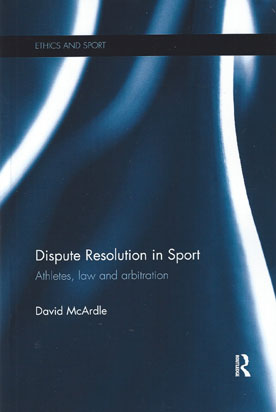
An increasing number of sport disputes are being resolved by way of arbitration. This is the first book to critically examine the process and benefits of sport-specific arbitration as compared to litigation.
The book explores in depth the development of alternative dispute resolutions in sports, paying particular attention to high-profile institutions such as the Court of Arbitration for Sport, the FIFA Football Dispute Resolution Panel, important national-level bodies including the Canadian, United States and New Zealand Sports Arbitration bodies and their relationship with national and international-level actors such as the IOC, WADA and the European Union.
It also examines in detail the legal frameworks within which sports arbitration systems operate, considers their similarities with other arbitral bodies and considers the extent to which ADR in sport can be seen as a consequence of, and perhaps a solution to, the 'juridification' of sports.
Offering a theoretical basis with which to understand the relationship between arbitration and litigation, as well as providing guidance on key contemporary issues and best practice, this book is important reading for students, researchers and practitioners working in sports law, sports management and administration, sports politics, sports ethics, and international organisation.